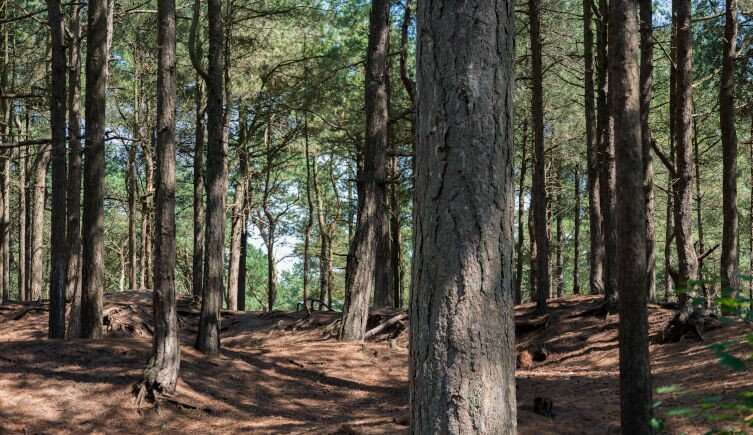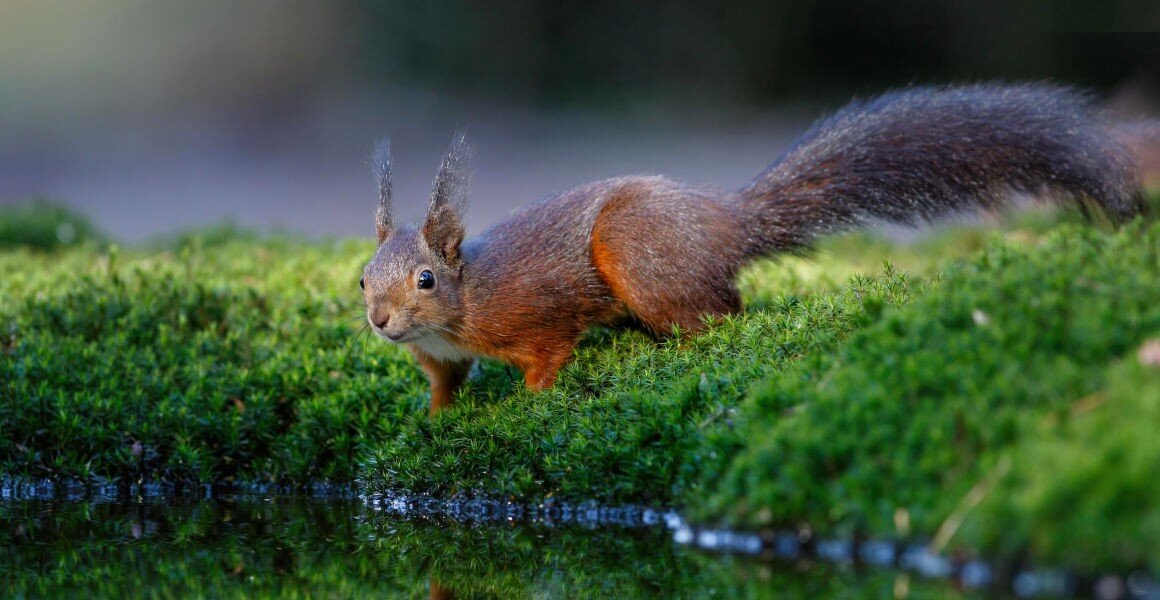Red squirrels are highly isolated from other populations in the UK. Credit: Henk Bogaard/Shutterstock
Feeding peanuts to red squirrels can alter the development of their jaws.
A population of the endangered rodents living in Formby, Merseyside have uniquely shaped lower jaws, possibly as a result of being fed softer food. While activity is now discouraged, the practice seems to have left a legacy in these squirrels, which are among the last to live on mainland England.
While it’s currently unclear whether the changes in jaw structure are the result of evolution or adaptations throughout life, the researchers’ ability to track the changes is an indication of how isolated the squirrels are becoming.
Kim Chandler, a Ph.D. University of York student studying how red squirrels change based on their diet.
“I don’t think these kinds of changes would have been observed if squirrel populations were larger,” explains Kim. “Without genetic mixing between them, British populations are very isolated from one another.”
“This means that populations in northern Scotland, Formby and elsewhere are effectively functioning as their own evolutionary islands.”
Why are red squirrels declining?
Turn the clock back 150 years and red squirrels would have lived in forests across the country as well as in outposts like Jersey in the Channel Islands.
However, this all began to change in the late nineteenth century. Some of the earliest gray squirrels were introduced at Henbury, Cheshire in 1876, followed by further introductions at Bushey, Hertfordshire and Woburn, Bedfordshire in the following years.

Woodland in Formby is one of the last remaining places where red squirrels can be found in England. Credit: Brian Maudsley/Shutterstock
These introductions were primarily for decorative reasons, with North American gray squirrels being released into private properties by wealthy landowners. Because the rodents reproduce faster than their native counterparts, the gray squirrels soon began to spread beyond these boundaries of these lands and across the country.
They were aided in their spread by squirrel pox, a viral disease transmitted benignly by gray squirrels but often fatal to red squirrels.
By 1937, while the import and possession of the invasive mammals was banned in the UK, it was already too late. Much of south-east and central England has already been dominated by the invasive greys, and over the last 85 years they have advanced further north and west.
Today, red squirrels survive in the coniferous and deciduous forests of Scotland, northern England and on islands such as the Isle of Wight and Anglesey. Although there have been occasional translocations between them, for most purposes each population is cut off from the rest.
How do squirrel populations differ in the UK?
When populations are isolated from one another, there is potential for individual groups to diverge as they respond to different resources and pressures in their respective environments.
As part of her PhD, Kim investigated if and how these changes take place by examining a collection of squirrel skeletons collected across the UK and kept at the National Museum of Scotland.
“Museum collections are invaluable to my work and without them it would not have been possible,” says Kim. “The collection of the National Museum of Scotland is constantly expanding, which shows a clear trend over the last few decades.”
Kim scanned the skeletons and used the digitized data to measure the shape of the skull and mandible, or mandible, of red squirrels from northern Scotland, northern England, Jersey and Formby over a period of time.
The different populations all had significantly different variations in the shape of their skull and mandible, with the bones of the Northern English and Scottish individuals being significantly more robust than those of the Formby individuals.
The parts of the bone that have muscles attached suggest that the Formby individuals had smaller masseter muscles, used for chewing, than their more northern counterparts. Kim has linked this to the diets of different populations.
“Scotland has a lot of pines, while northern England has a mix of trees like pine, hazel and oak,” says Kim. “These produce harder nuts and cones that require larger muscles to consume.”
“The situation is very different in Formby. Feeding peanuts to red squirrels in the past has given them softer food not normally found in their diets.”
One study suggests that in the 1990s, up to 56% of Formby squirrels’ diet consisted of peanuts alone. Feeding the squirrels is now discouraged as it can affect the health of the animals and is a potential way for disease to spread in this important population.
While the study shows that the average shape of their mandibles has changed over the past several decades, it’s not enough to say whether or not this is evidence of evolution in action. The changes may instead be “plastic,” reflecting nonheritable adaptations to available food sources, with more specimens needed to solve this puzzle.
Kim also hopes to answer other questions about these adaptations in the rest of her PhD by delving deeper into the process of how squirrels eat. Their goal is to study the severity of bites in different populations and study the difficulty in consuming each of their foods.
Studies like Kim’s will help scientists gain a better understanding of these animals and feed into projects aimed at preserving our native squirrels.
Feeding red squirrels peanuts can make the natural diet a tough nut to crack
Provided by the Natural History Museum
Citation: Feeding British red squirrels may be change their jaws (2022, October 18), retrieved October 18, 2022 from https://phys.org/news/2022-10-british-red-squirrels-jaws.html
This document is protected by copyright. Except for fair trade for the purpose of private study or research, no part may be reproduced without written permission. The content is for informational purposes only.
#Feeding #British #red #squirrels #alter #jaws


Leave a Comment